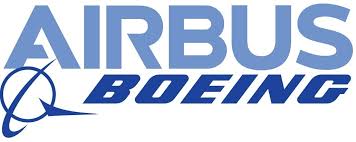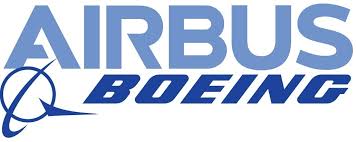
When the next generation of airplanes are designed and developed by the air plane markers Airbus SE and Boeing Co, they are expected to try and develop and use hybrid electric technology because there are limits to the extent to which the current engines can be improved in terms of fuel efficiency and reduction of emission of greenhouse gases, according to the chief of a major aircraft lessor.
Sources have said that currently, work on a hybrid engine powered airplane is being carried out by already Airbus. However, it is more likely that Boeing will adopt a more cautious approach at making any major investment in any new project or program because of the challenges that it is facing with the return of its Max 737 planes into the air and the certification of the 777X. These were said by the Air Lease Corp Chief Executive Steven Udvar-Hazy speaking at the Skift Aviation Forum.
"I have serious doubts that either Boeing or Airbus can design an all new airplane using current aerodynamic engine technologies that can have a meaningful - let's call it double-digit advantage over what we already have," he said in reference to fuel efficiency. "So what I see evolving is more of a hybrid."
Development and deployment of hybrid engines for aircrafts will being in a technology transition instead of a step or incremental change and such engines will also allow for development of lighter weight aircraft, said Udvar-Hazy.
"Almost like we didn't go from all piston engine and diesel cars to all electric cars," he said. "There's that transition with hybrids that have a smaller gasoline engine and then an electric augmentation engine, like the Prius for the example."
Plans were under consideration to the development of a hybrid plane by 2035, Airbus had said last year, as a part of its efforts to come out with low emission aircraft. On the other hand, premier engine makers Rolls-Royce Holdings PLC said in March that it expected small aircrafts using hybrid engines that can carry around 100 people to be operating commercially by 2029.
There were no comments available on the issue form Boeing.
According to a FlightGlobal report, it could decades before the company could be able to scale up hybrid technology based engines to be strong enough for a 737-sized plane, Boeing's director of environmental strategy Sean Newsum said in January, even though Newsum believed that hybrid-powered regional planes could be seen to be flying commercially in the 2030s.
(Source:www.usmews.com)
Sources have said that currently, work on a hybrid engine powered airplane is being carried out by already Airbus. However, it is more likely that Boeing will adopt a more cautious approach at making any major investment in any new project or program because of the challenges that it is facing with the return of its Max 737 planes into the air and the certification of the 777X. These were said by the Air Lease Corp Chief Executive Steven Udvar-Hazy speaking at the Skift Aviation Forum.
"I have serious doubts that either Boeing or Airbus can design an all new airplane using current aerodynamic engine technologies that can have a meaningful - let's call it double-digit advantage over what we already have," he said in reference to fuel efficiency. "So what I see evolving is more of a hybrid."
Development and deployment of hybrid engines for aircrafts will being in a technology transition instead of a step or incremental change and such engines will also allow for development of lighter weight aircraft, said Udvar-Hazy.
"Almost like we didn't go from all piston engine and diesel cars to all electric cars," he said. "There's that transition with hybrids that have a smaller gasoline engine and then an electric augmentation engine, like the Prius for the example."
Plans were under consideration to the development of a hybrid plane by 2035, Airbus had said last year, as a part of its efforts to come out with low emission aircraft. On the other hand, premier engine makers Rolls-Royce Holdings PLC said in March that it expected small aircrafts using hybrid engines that can carry around 100 people to be operating commercially by 2029.
There were no comments available on the issue form Boeing.
According to a FlightGlobal report, it could decades before the company could be able to scale up hybrid technology based engines to be strong enough for a 737-sized plane, Boeing's director of environmental strategy Sean Newsum said in January, even though Newsum believed that hybrid-powered regional planes could be seen to be flying commercially in the 2030s.
(Source:www.usmews.com)














